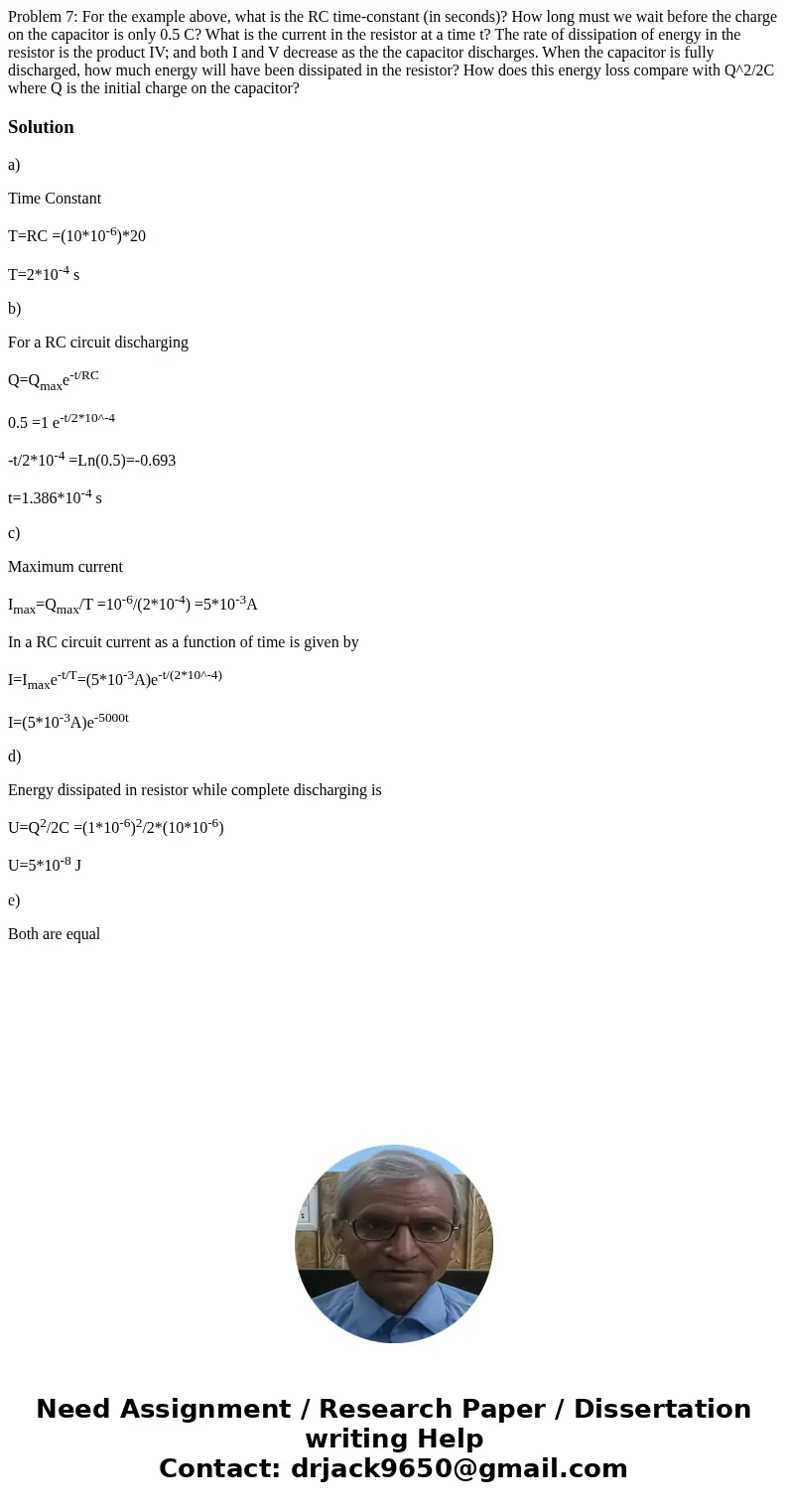Problem 7 For the example above what is the RC timeconstant
Problem 7: For the example above, what is the RC time-constant (in seconds)? How long must we wait before the charge on the capacitor is only 0.5 C? What is the current in the resistor at a time t? The rate of dissipation of energy in the resistor is the product IV; and both I and V decrease as the the capacitor discharges. When the capacitor is fully discharged, how much energy will have been dissipated in the resistor? How does this energy loss compare with Q^2/2C where Q is the initial charge on the capacitor?
Solution
a)
Time Constant
T=RC =(10*10-6)*20
T=2*10-4 s
b)
For a RC circuit discharging
Q=Qmaxe-t/RC
0.5 =1 e-t/2*10^-4
-t/2*10-4 =Ln(0.5)=-0.693
t=1.386*10-4 s
c)
Maximum current
Imax=Qmax/T =10-6/(2*10-4) =5*10-3A
In a RC circuit current as a function of time is given by
I=Imaxe-t/T=(5*10-3A)e-t/(2*10^-4)
I=(5*10-3A)e-5000t
d)
Energy dissipated in resistor while complete discharging is
U=Q2/2C =(1*10-6)2/2*(10*10-6)
U=5*10-8 J
e)
Both are equal

 Homework Sourse
Homework Sourse